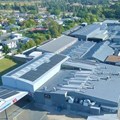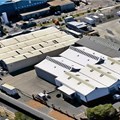Growth in online retail bodes well for SA's industrial property sector

Naspers-owned e-commerce group Takealot has made significant investments in warehousing centres not only in Gauteng but also in the Western Cape and, more recently, in KwaZulu-Natal in the Riverhorse Valley node. This comes as international entrants like Buffalo Logistics, which services Asian e-commerce giants Temu and SHEIN, and US e-commerce and tech behemoth Amazon enter the SA market.
Growth in online retail and its impacts
As online retail continues to capture a larger share of South African consumer spend, with Rand Merchant Bank projecting a staggering 150% surge in e-commerce transactions by 2025, more businesses have invested in developing an online presence. These online sales come out of warehouses, which is a big driver of new industrial property development.
The industrial property market has changed over the past 10 years. Instead of light manufacturing or heavy manufacturing, where there has been a reduction in activity due to certain duties falling away on certain commodities resulting in an influx of imports, these spaces are moving towards logistics and supply chain uses.
Trend toward high-tech industrial spaces
At Redefine, for example, our industrial portfolio composition has shifted as a result and is now heavily weighted toward modern logistics and high-tech industrial assets constructed to support supply chain elements, such as distribution, retail warehousing, and logistics operations.
These types of hi-tech industrial spaces are typically what you will find in key areas like Linbro, Longmeadow, and Midrand in Gauteng, in newer nodes north of Paarden Island and Montague Gardens in the Western Cape, and in Riverhorse Valley in KwaZulu-Natal.
Furthermore, the exponential rise in data usage as a result of increased e-commerce, remote work, cloud storage, AI and high-speed streaming has fuelled demand for data centres. These now occupy large portions of industrial land, mostly in Gauteng and the Western Cape, Nell says.
Large areas of land and electrical capacity are needed for these facilities in those important nodes. Data centres consume a lot of energy and land, requiring more space than is usually found in the industrial sector.
Sustainable and sovereign industrial spaces
Considering constraints around electricity capacity and water supply in certain areas of the country, and the increasing cost of supply, Nell says tenants require sovereign and sustainable industrial spaces that can function in a node even when infrastructure and municipal services are compromised.
As such, companies should make investments in various interventions such as solar PV rollouts on buildings and the use of LED lighting, which will significantly reduce kilowatt-hour consumption. This, Nell says, helps ensure energy cost efficiencies and a stable energy supply so that the business occupying that space can continue operations without disruption.
There's also the challenge of water supply in certain areas, such as Gauteng metros. Just recently, the City of Tshwane issued a supply warning, stating that Rand Water's supply system is “on the verge of collapse,” with water storage for the bulk supplier sitting at below 30%.
For example, Redefine continues to invest in water security measures at its industrial buildings to provide access to water during outages. These measures include solar power, generators, water harvesting, and storage facilities, and other measures that keep buildings functioning even when the surrounding water infrastructure can't support the building and surrounding node.
It is essentially about reducing the cost of occupancy and establishing sovereignty; being able to operate irrespective of what's happening around us in the greater node around our buildings. In this way, buildings will stay operational and secure.
Opportunities in sustainable real estate
While many companies are trying to buy the industrial spaces they occupy rather than rent them, Nell says these buildings might eventually be put back up for sale.
The reason is that managing a real estate portfolio is not their primary function. And, by concentrating on their business while we concentrate on ours, companies can engage in meaningful business when they partner with us. Our goal is to assist companies in implementing efficient and sustainable spaces, which have become increasingly important in the South African environment.
In conveniently located nodes, and with the support of real estate companies that focus on sustainable energy and water supplies, companies in the online retail sector and beyond can flourish.





































